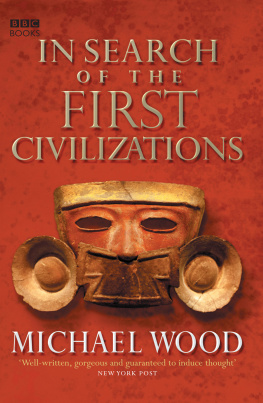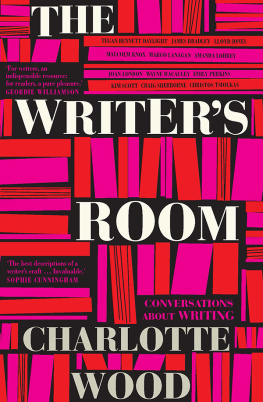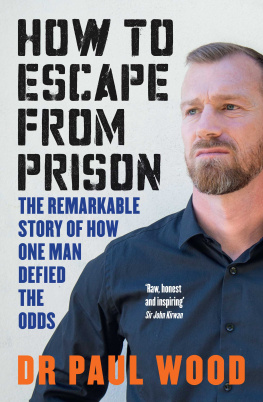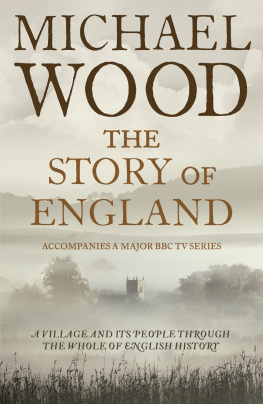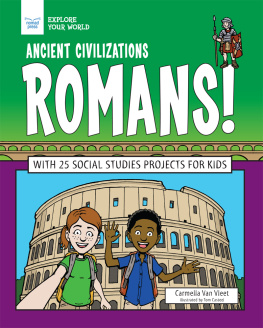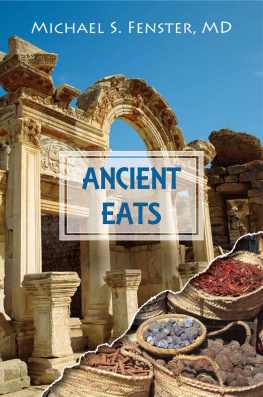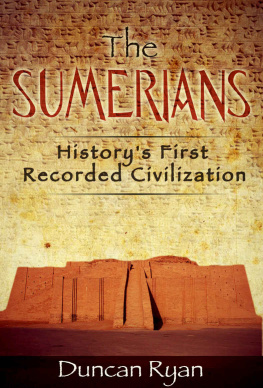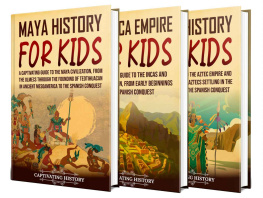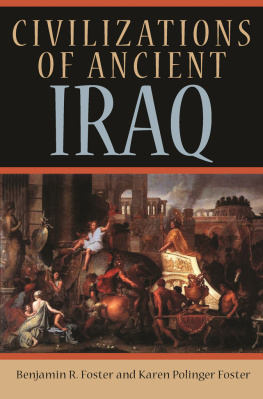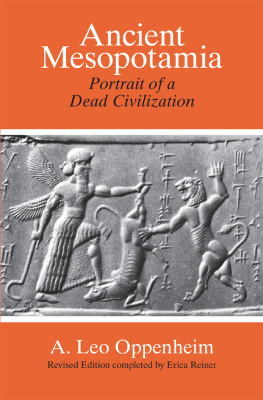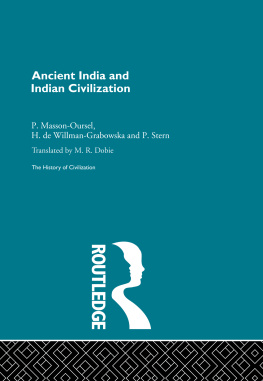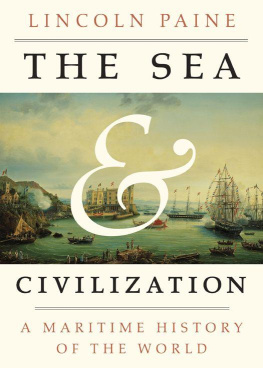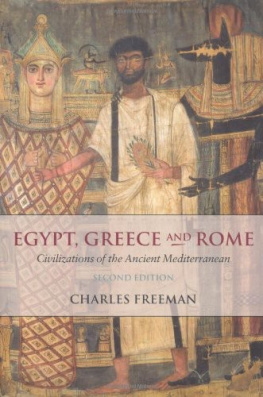CONTENTS
ONE
IRAQ: The Cradle of Civilization
TWO
INDIA: Empire of the Spirit
THREE
CHINA: The Mandate of Heaven
FOUR
EGYPT: The Habit of Civilization
FIVE
CENTRAL AMERICA: The Burden of Time
SIX
THE BARBARIAN WEST
For Rebecca
PREFACE
IN THE YEAR 1000, if you were a traveller or trader with the contacts and the curiosity, you could have seen all the ancient civilizations of the Old World at the very height of their traditional culture. If you were a Western European you would have needed the Arabic language too, for this was the lingua franca of sailors between the Mediterranean and the Indian Ocean. But with spoken Arabic (and a lot of luck to avoid pirates, shipwreck and disease) you could have hitched a series of passages from Anglo-Saxon England to the Yellow Sea, bartering your way along well-trodden trade routes: with Arabs in the Arabian Sea, Tamils across the Indian Ocean to Indonesia, and then Chinese captains who traded the whole vast area between Mombasa and Japan. And what a wonderful journey! You could have visited Byzantium, Cairo, Abbasid Baghdad, Cholan South India, Cambodia and Sung dynasty China. These civilizations had arisen in the Bronze Age. The oldest had developed their religion and philosophy, science and technology over four millennia, and all were now at the peak of their achievement in arts, science and humanistic culture. You could have visited glittering courts, magnificent churches, mosques and temples, and seen wonderful treasures of art and architecture. If there is one moment in time to which one might wish to travel, it would surely be this.
Move on five hundred years, and the picture changes. The descendants of the ancient civilizations are still there in Persia, Ming China, and Moghul India. But by 1500 AD, the axis of history is shifting, its centre of gravity no longer in its Asiatic heartland. As we see it now, the opening up of the sea route to India and the discovery of the New World were indeed, as Adam Smith said, the greatest events in the history of the world. At the time the idea would have been laughed at by Chinese mandarins at court in Peking. Their ships had, after all, already explored the African coast, rounded the Cape of Good Hope and landed in Australia. Huge fleets with giant ships, dwarfing the boats of Columbus , Magellan and Vasco de Gama; vessels equipped with stern rudders, the compass and gunpowder, with shipboard kitchen gardens growing fresh vegetables. But history was in fact against them. In the 1520s and 30s the empires of the Aztecs and the Incas in Mexico and Peru were overthrown by European adventurers armed with new technology. The European appropriation of the American continent and its natural resources rapidly followed, with the virtual extermination of the native population. This set the stage for the era of European world domination, at the end of which we still live. The colonial epoch has seen the demolition of most of the traditional civilizations and societies, ending in the twentieth century with the disintegration of imperial China and the undermining of the last traditional Muslim civilization in Persia. Of all the classical cultures, perhaps only the Tamil survived in anything like a recognizable form at the end of the twentieth century. Now, I suspect we have reached the point of no return in the advance of globalization and modernism. The battles against modernity fought in the nineteenth and twentieth centuries the Mayan Revolt, the Iranian Revolution, the Hindu revival are only three of the most typical now look like a rearguard action as the global hegemony of the free market and TV culture scrubs away encoded identities built up over several millennia.
This trajectory is the background to this book, and has become all the more clear in the years since it was first written. Expanded from the scripts of a series of film essays, it attempts a sketch of how we got here: the first 5000 years of civilization. It is a portrait of the first civilizations and their continuing legacy, beginning with the revolution which took place in the Fertile Crescent five thousand years ago when human beings first began to live in cities. It focuses on the city civilizations which developed independently in Iraq, Egypt, India, China and Central America: the ancient civilizations which made us what we are in our modes of thinking, in our religious beliefs, in our ways of organizing human society and which still affect the lives of everyone on earth today.
The films involved long journeys inside these cultures. We stayed in mudbrick villages in the wheatfields of northern China and in tents among millions of pilgrims at Indias Kumbh Mela; we slept in the reed huts of the Marsh Arabs in South Iraq. These were the kind of journeys and experiences which opened new vistas on the relative importance of ones own culture and history. To find oneself, for example, in the old Jewish quarter in Kaifeng in China in the place which led the world in industry, science and printing in the tenth century; to listen to Tamil oduvars singing sixth-century hymns to a huge and appreciative festival audience in the enormous temple at Chidambaram in South India; to be present at Momostenago in Highland Guatemala on the festival of Eight Monkey when new Mayan shamans are initiated who will keep their pre-Christian calendar: such experiences make history come alive in a way which no book can. And of course they also offer an entirely different perspective on the world. Chinas history, to use an example almost too obvious to need stating, is as rich and diverse as that of the West.
Visits to Baghdad on the eve of the Gulf War were equally illuminating and exciting. There are very few surviving physical remains of that most astonishing epoch of pluralist culture which flourished in Baghdad also in that same tenth century. But in conversation with Iraqi scholars and friends both there and in exile, I was constantly reminded that the brilliant literature and philosophy of that time is still common currency in educated Arabic culture in a way that comparable material in the West simply is not. We all have much to learn about, and from, each others civilizations.
The word civilization is used throughout this book. It is a problematic term these days with its connotations of racial and cultural superiority, as when Western politicians speak of the civilized world, when they mean their own liberal democratic culture. The definition of civilization commonly used by anthropologists and archaeologists is a material one. For them civilization means, literally, life in cities. We speak of the rise of civilization or the first civilizations on this basis. As we shall see, the moral and spiritual character of the worlds early civilizations was very diverse. But their common markers in material terms are virtually universal: cities, bronze technology, writing, great ceremonial buildings, temples, monumental art, hierarchies and class division, all sanctioned by some form of law, and held together by organized military force. Of the six primary civilizations, Iraq, Egypt, India, China, Central America and Peru, only the last, which is not treated in this book, did not develop all these features (most notably, the early Peruvians did not have writing). Nevertheless, these common material factors hide very different conceptions of what civilization actually is, that is, the ultimate goals of organized human life on earth, moral, intellectual, political and spiritual, and therein lies the fascination of this kind of comparative history.
The choice of the civilizations in this book, it should be stressed, depends on the independent rise of large-scale urban life. Hence the exclusion of other no less fascinating cultures, in Japan for example, Cambodia, Crete or West Africa, which are not generally regarded as primary. This point about the independent origins of civilization has particular significance for us now, for only when we look at the beginnings and the long and continuing influence of the first civilizations can we hope to understand what is universally relevant in our own history and what is merely Western idiosyncrasy. Now at the beginning of a new millennium, it is a good time to reflect on the great historical questions raised by the pace of change in our own time. The histories and identities of the civilizations and peoples in this book are in the process of being erased as surely as the rainforests are being felled. One of the great battles of the twenty-first century will be whether these traditional worlds will survive at all in the face of modernisms massive and deliberate assault on the givenness of what has come down to us from the past. If not, we may be the last generation to see much of what is described in this book.
Next page
